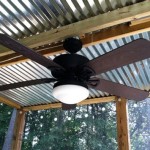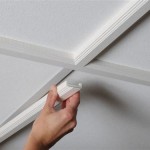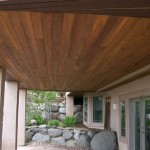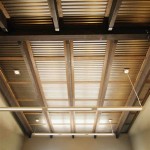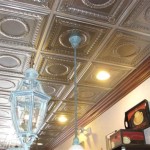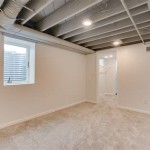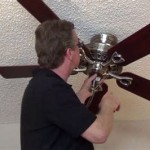Cost of False Ceiling Installation in a Single Room in Portland, Oregon
Understanding the cost of installing a false ceiling, also known as a suspended ceiling or drop ceiling, in a single room in Portland, Oregon, necessitates an examination of several contributing factors. These factors significantly influence the overall expense, making it crucial for homeowners and businesses to conduct thorough research and consider their specific needs and limitations before embarking on this home improvement project. Labor costs, material selection, room size and complexity, and any necessary preparatory work all play a role in determining the final price. This article provides a detailed overview of these elements and how they impact the cost of false ceiling installation in Portland.
Portland, Oregon, experiences a dynamic real estate market, and home improvement projects such as false ceiling installations are influenced by local economic conditions. Material costs may vary depending on supply chain dynamics and seasonal demand. Labor rates are also contingent upon the experience and qualifications of local contractors, as well as the overall demand for their services. Therefore, understanding the Portland-specific factors is essential for accurate cost estimations.
Key Cost Factors Affecting False Ceiling Installations
Several key factors influence the total cost of installing a false ceiling in Portland. These include the type of materials used, the size and shape of the room where the ceiling is being installed, and the complexity of the installation. These elements often dictate the scope and duration of the project, directly affecting labor costs and overall material requirements.
Material Choice: The choice of materials for the false ceiling significantly impacts the project's final cost. Common materials include mineral fiber, gypsum, metal, and PVC. Mineral fiber tiles are typically the most affordable option, offering decent sound absorption and fire resistance. Gypsum boards provide a smoother, more seamless look but require more extensive finishing work, thus increasing labor costs. Metal ceilings, such as aluminum or steel, are durable and moisture-resistant, making them suitable for kitchens and bathrooms, but they are generally more expensive than mineral fiber or gypsum options. PVC tiles are lightweight, water-resistant, and easy to clean, but their aesthetic appeal may not be as refined as other materials. The cost of each material will vary depending on its quality, brand, and availability in the Portland area.
Room Size and Shape: The dimensions of the room, particularly the square footage and ceiling height, directly correlate with the amount of material needed and the labor hours required. Larger rooms naturally require more tiles and suspension grid components, increasing the overall material cost. Irregularly shaped rooms, with angles or obstructions like pipes and ductwork, necessitate more precise cutting and fitting, adding to the complexity of the installation and potentially increasing labor costs. A simple, rectangular room will generally be cheaper to install than a room with complex architectural features.
Complexity of Installation: The complexity of the installation also affects the overall cost. Factors contributing to complexity include the presence of existing lighting fixtures, the need to relocate or accommodate HVAC systems, and the desired level of customization. Recessed lighting, for example, requires careful planning and execution to ensure proper integration with the false ceiling grid. Similarly, if the existing ceiling contains asbestos or other hazardous materials, abatement procedures will be necessary before the new ceiling can be installed, adding significantly to the project's cost. Intricate designs, such as curved ceilings or multiple levels, also increase labor time and material waste, pushing up the total expense.
Detailed Breakdown of Cost Components
To accurately estimate the cost of a false ceiling installation, it's essential to understand the individual components that contribute to the total price. These components typically include materials, labor, permits (if required), and potential additional costs such as waste disposal and contingency funds for unforeseen issues.
Material Costs: Material costs typically constitute a significant portion of the overall expense. As noted previously, the cost per square foot of the ceiling tiles themselves can vary widely depending on the material. In addition to the tiles, homeowners must factor in the cost of the suspension grid, which includes main runners, cross tees, and wall angles. Fasteners, connectors, and other hardware also add to the material expenses. It's important to obtain accurate measurements of the room to minimize material waste and ensure sufficient quantities are purchased. Prices can vary slightly from different supply stores and online retailers within Portland.
Labor Costs: Labor costs are generally calculated on an hourly or per-square-foot basis. The hourly rate for a skilled contractor in Portland can range from $75 to $150, depending on their experience and expertise. The per-square-foot rate is typically lower, ranging from $3 to $8, but this rate may increase for complex installations. The labor cost includes the time required for measuring, cutting, installing the suspension grid, fitting the tiles, and cleaning up the work area. Complex installations requiring specialized skills or significant time investment will naturally result in higher labor costs. It is always recommended to obtain multiple quotes from different contractors to compare prices and ensure the selection of a qualified and reputable professional.
Permit and Inspection Costs: In some cases, depending on the scope of the work and local building codes, a permit may be required for the false ceiling installation. Permit costs vary depending on the municipality within the Portland metropolitan area. Additionally, an inspection may be necessary to ensure that the installation complies with safety standards and building regulations. The cost of permits and inspections should be factored into the overall budget to avoid unexpected expenses.
Additional Costs: Beyond the core materials, labor, and permits, several potential additional costs should be considered. These may include waste disposal fees for removing old ceiling materials, scaffolding or specialized equipment rental if the ceiling height is excessive, and costs associated with moving or protecting furniture and belongings in the room. A contingency fund, typically 5-10% of the total estimated cost, is advisable to cover any unforeseen issues that may arise during the installation process, such as hidden structural problems or unexpected material shortages.
Estimating the Cost for a Single Room in Portland
Estimating the specific cost of a false ceiling installation in a single room in Portland requires a practical approach. Consider a standard bedroom with dimensions of 12 feet by 15 feet (180 square feet). We will examine different material options and potential associated costs.
Low-End Scenario (Mineral Fiber Tiles): Using mineral fiber tiles, which are generally the most affordable, the material cost can be estimated at $1.50 to $3 per square foot. For a 180-square-foot room, this translates to $270 to $540 for the tiles. The suspension grid and hardware might cost an additional $1 to $2 per square foot, adding another $180 to $360. Labor costs at the lower end, assuming a rate of $3 per square foot, would be $540. Therefore, the total cost for a low-end scenario would range from $990 to $1440.
Mid-Range Scenario (Gypsum Boards): Gypsum boards are a mid-range option that provides a smoother finish. The material cost can be estimated at $3 to $5 per square foot, resulting in $540 to $900 for a 180-square-foot room. The suspension grid and hardware costs remain approximately the same at $180 to $360. However, labor costs are likely to be higher due to the more extensive finishing work required, potentially ranging from $5 to $7 per square foot, adding $900 to $1260. Therefore, the total cost for a mid-range scenario would range from $1620 to $2520.
High-End Scenario (Metal or Customized Tiles): Metal tiles or customized designs represent the higher end of the spectrum. Material costs can range from $5 to $10 or more per square foot, translating to $900 to $1800+ for a 180-square-foot room. The suspension grid and hardware costs might also be slightly higher, potentially reaching $2 to $3 per square foot, adding $360 to $540. Labor costs for complex installations with metal or customized materials could range from $7 to $10 or more per square foot, adding $1260 to $1800+. The total cost for a high-end scenario would range from $2520 to $4140+.
These estimates are approximations and can vary depending on the specific conditions and choices made regarding materials, labor, and design complexity. Obtaining multiple quotes from qualified contractors in the Portland area is essential for a more accurate assessment.

Ceiling Tiles Aluminum Copper Pvc Styrofoam Decorative

Ceiling Tiles Aluminum Copper Pvc Styrofoam Decorative

How Much Does It Cost To Install A Drop Ceiling 2025 Data

Drop Ceiling Or Drywall Which One Should You Choose

Pop Designs For Your Home In 2024

Ceiling Tiles Aluminum Copper Pvc Styrofoam Decorative

Pop Designs For Your Home In 2024

How Much Does A Drop Ceiling Cost In 2025 Homeguide

Water Proof Pvc False Ceiling At 34 00 Inr Best In Nagpur Shri Swami Enterprises

How Much Does A Drop Ceiling Cost In 2025 Homeguide
Related Posts

